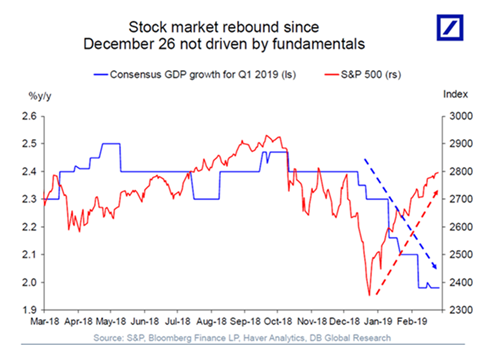XRP's Legal Battle: Understanding The SEC's Commodity Claim

Table of Contents
The SEC's Case Against Ripple and XRP
The SEC filed a lawsuit against Ripple Labs in December 2020, alleging that Ripple offered and sold XRP as an unregistered security, violating federal securities laws. This action represents a significant challenge to the cryptocurrency industry, raising questions about the regulatory classification of digital assets.
-
The Howey Test: The SEC's argument hinges on the "Howey Test," a legal framework used to determine whether an investment contract qualifies as a security. The Howey Test considers four elements: an investment of money, in a common enterprise, with a reasonable expectation of profits, derived from the efforts of others. The SEC argues that XRP sales satisfy all four prongs of the Howey Test.
-
Ripple's XRP Sales: The SEC claims Ripple engaged in unregistered securities offerings by selling billions of XRP to institutional and retail investors. They contend that these sales were conducted without proper registration with the SEC, defrauding investors.
-
Accusations of Misleading Investors: The SEC alleges that Ripple misled investors about XRP's nature and its regulatory compliance, exacerbating the severity of the alleged violation.
-
Potential Penalties: If found guilty, Ripple faces significant financial penalties and potential restrictions on its future operations. The outcome could set a major precedent for how other cryptocurrency projects are regulated.
Ripple's Defense and Arguments
Ripple vehemently denies the SEC's accusations, arguing that XRP is a digital currency, not a security. Their defense strategy rests on several key arguments:
-
XRP as a Currency: Ripple maintains that XRP functions as a decentralized digital currency, akin to Bitcoin or Ethereum, facilitating cross-border payments. They highlight its use in various payment networks and exchanges as evidence.
-
Decentralized Nature of XRP: Ripple emphasizes the decentralized nature of XRP's network, contrasting it with more centralized projects that might be considered securities. They argue this decentralized nature removes the element of reliance on Ripple's efforts for profit, a crucial component of the Howey Test.
-
Supporting Evidence: Ripple has presented various evidence, including expert testimonies and market analysis, to support their claims about XRP's functionality and decentralized nature.
-
Legal Strategies: Ripple's defense team has employed various legal strategies, including challenging the SEC's jurisdiction and arguing for a fair and just resolution that considers the unique characteristics of cryptocurrencies.
The Implications of the Case for the Cryptocurrency Market
The Ripple-SEC case has far-reaching implications for the entire cryptocurrency industry. Its outcome will significantly impact:
-
Cryptocurrency Regulation: The case is setting a precedent for how the SEC will approach regulating cryptocurrencies. A ruling against Ripple could lead to stricter regulations on other digital assets, potentially impacting innovation and growth.
-
Other Crypto Projects: Many other crypto projects are watching this case closely, as a similar ruling could affect their own legal standing and future operations. The Ripple case is setting a benchmark for other potential regulatory challenges.
-
Investor Confidence: The uncertainty surrounding the case has already impacted investor confidence in the crypto market. A decisive ruling, regardless of the outcome, could either restore confidence or further unsettle the market.
-
Future Legal Precedents: The Ripple-SEC case is establishing important legal precedents that will shape future regulatory actions concerning digital assets and their classification.
The Judge's Ruling and Potential Outcomes
The judge overseeing the case has issued several significant rulings, including decisions on the admissibility of evidence and procedural matters. Several potential outcomes exist:
-
SEC Victory: A victory for the SEC could severely impact Ripple and set a precedent for stricter regulation of other cryptocurrencies, potentially leading to a downturn in the market.
-
Ripple Victory: A victory for Ripple could bolster investor confidence and potentially lead to greater regulatory clarity (though not necessarily less regulation), fostering growth in the crypto space.
-
Settlement: A settlement between the SEC and Ripple could avoid a protracted legal battle, but the terms of any settlement would significantly influence future regulatory actions. The outcome could still significantly impact XRP's price and the crypto market.
Conclusion:
The SEC's case against Ripple over XRP is a landmark case with significant implications for the future of cryptocurrency regulation. Understanding the intricacies of the SEC's commodity claim, Ripple's defense, and the potential outcomes is vital for navigating the complexities of the crypto market. Staying informed on the developments in XRP's legal battle is crucial for making informed investment decisions. Keep following updates to understand the implications of this significant case for the entire cryptocurrency ecosystem.

Featured Posts
-
 Chinese Stock Market Rebound Assessing The Impact Of Us Negotiations And Economic Indicators
May 07, 2025
Chinese Stock Market Rebound Assessing The Impact Of Us Negotiations And Economic Indicators
May 07, 2025 -
 Zobacz Fakt W Onet Premium W Cenie Promocyjnej
May 07, 2025
Zobacz Fakt W Onet Premium W Cenie Promocyjnej
May 07, 2025 -
 Gewinnzahlen Lotto 6aus49 Ziehung Vom 9 4 2025
May 07, 2025
Gewinnzahlen Lotto 6aus49 Ziehung Vom 9 4 2025
May 07, 2025 -
 Pickens Trade Talks What Schultz Is Saying About The Steelers Wr
May 07, 2025
Pickens Trade Talks What Schultz Is Saying About The Steelers Wr
May 07, 2025 -
 Adames Walk Off Single Secures Giants Home Opener Win
May 07, 2025
Adames Walk Off Single Secures Giants Home Opener Win
May 07, 2025
Latest Posts
-
 F4 Elden Ring Possum And Superman Quick News Roundup
May 08, 2025
F4 Elden Ring Possum And Superman Quick News Roundup
May 08, 2025 -
 Future Park Demolition Of 160 Year Old Pierce County House
May 08, 2025
Future Park Demolition Of 160 Year Old Pierce County House
May 08, 2025 -
 Saving Private Ryans Reign Ends A New Best War Film
May 08, 2025
Saving Private Ryans Reign Ends A New Best War Film
May 08, 2025 -
 Pierce County Historic Homes Transformation Into A Park
May 08, 2025
Pierce County Historic Homes Transformation Into A Park
May 08, 2025 -
 Demolition Of Historic Pierce County Home To Create Public Park
May 08, 2025
Demolition Of Historic Pierce County Home To Create Public Park
May 08, 2025
